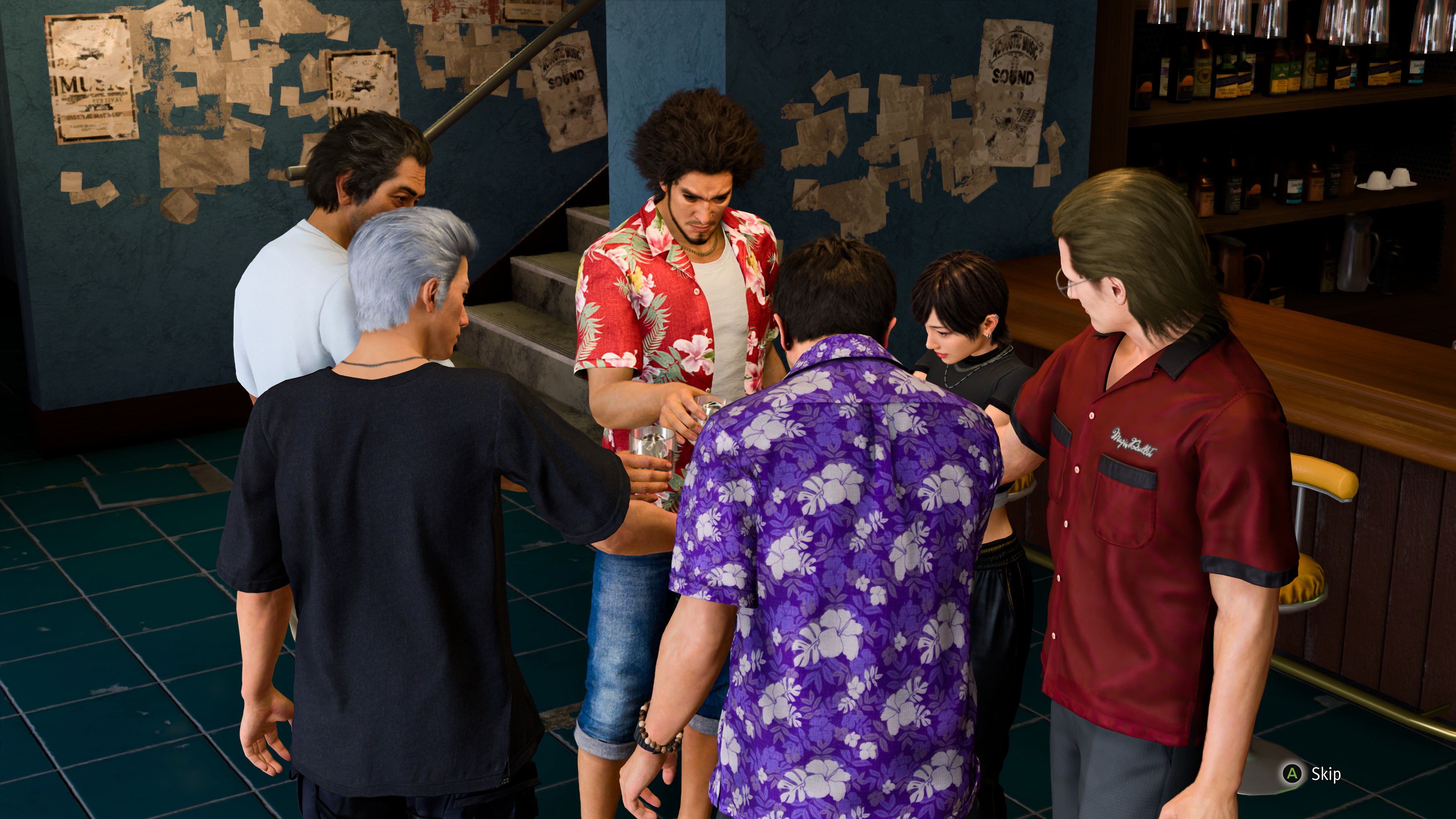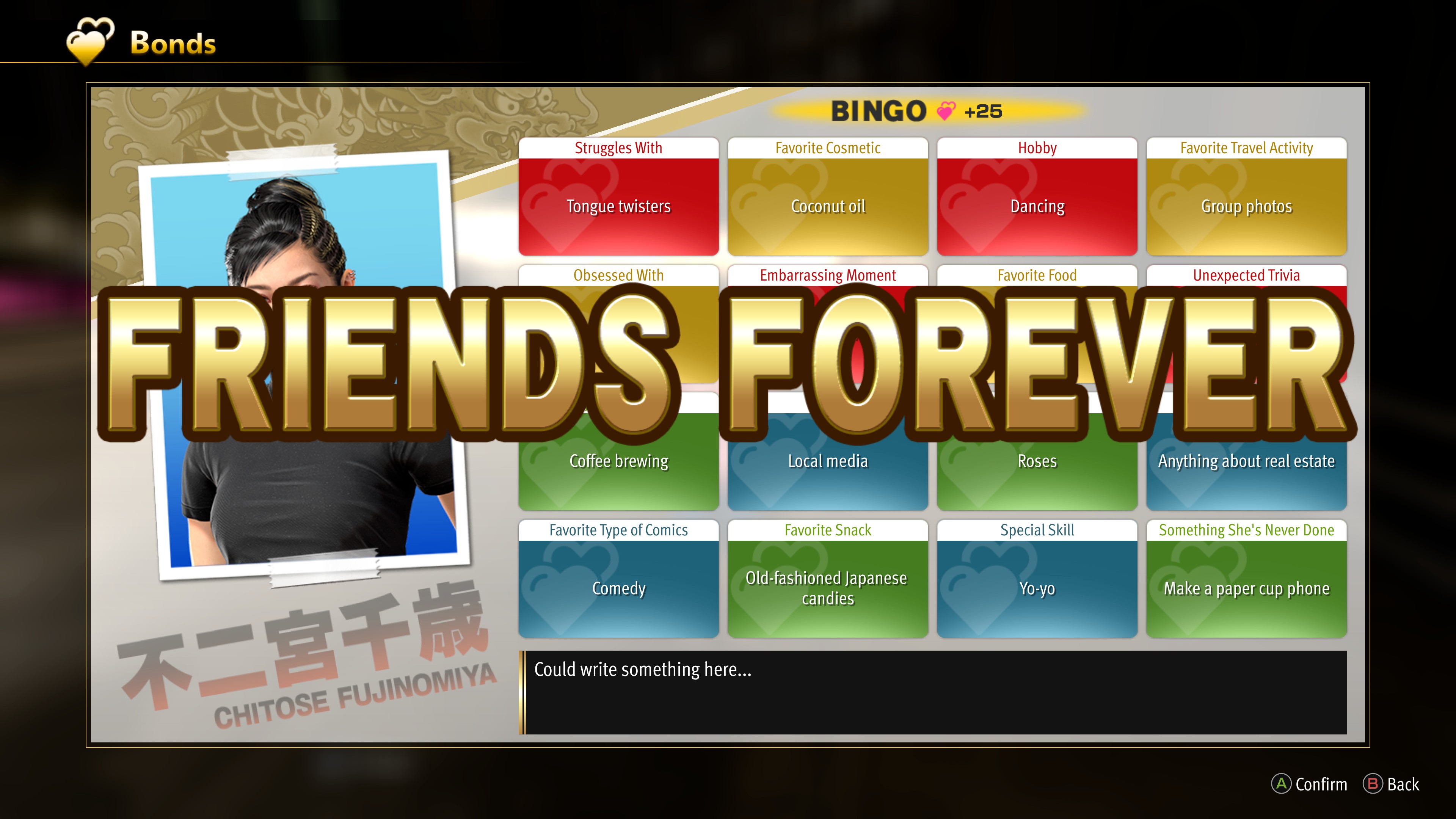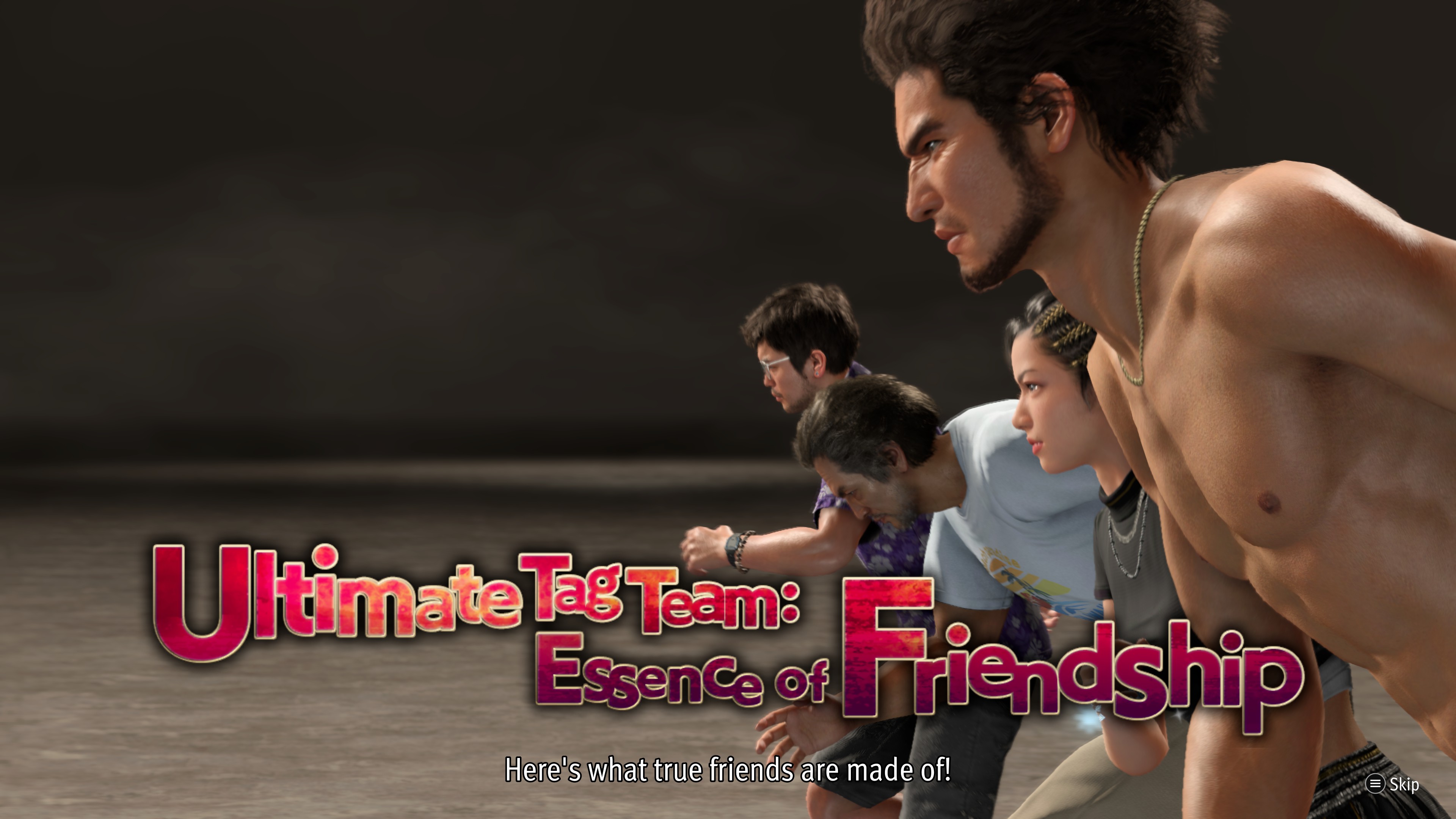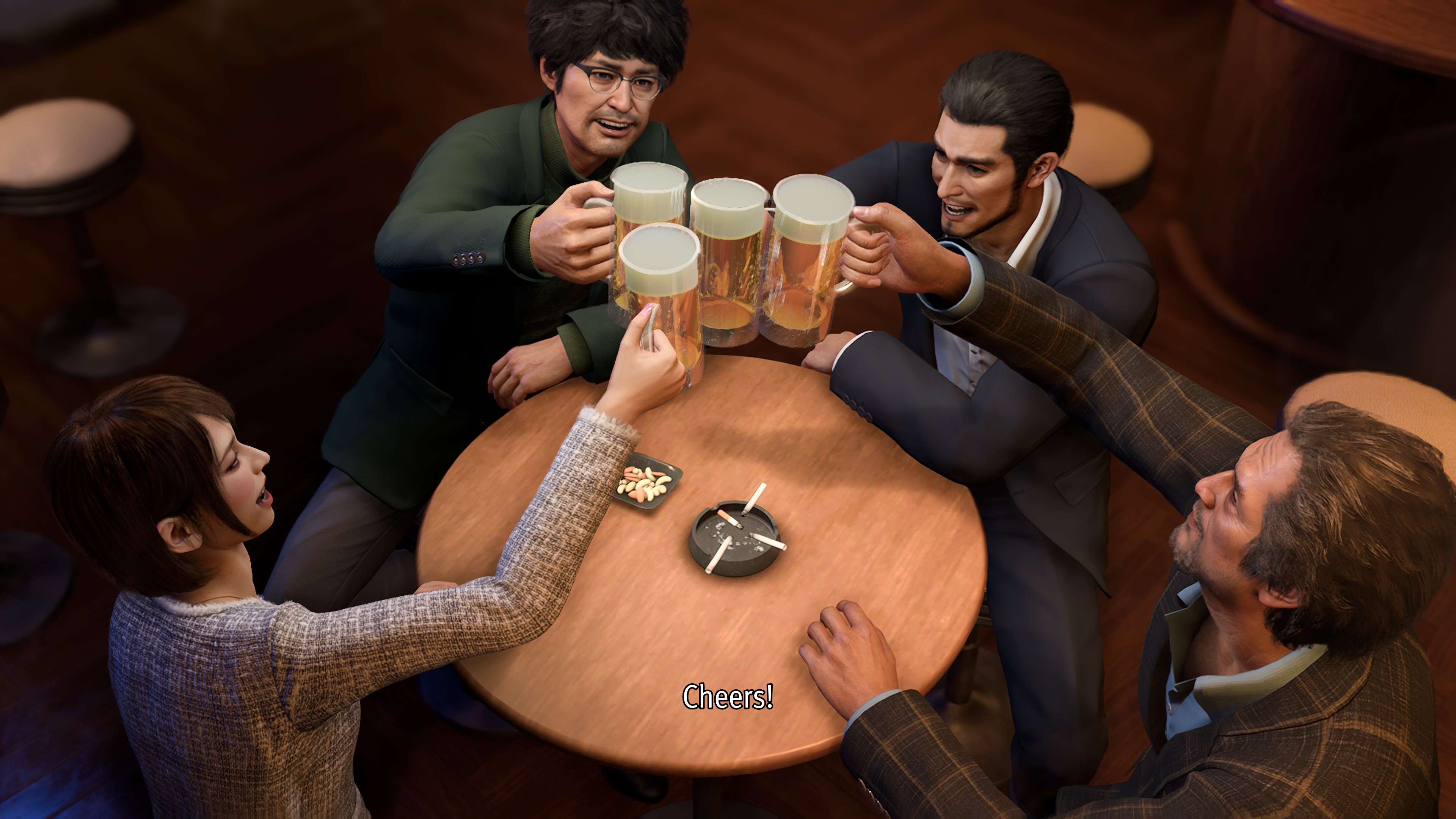The latest Yakuza game has all kinds of themes it wants to explore over its 100+ hours: The nature of power, of politics, a man's loyalty to a cause. Actually...that's most Yakuza games. What Infinite Wealth has to say specifically is something else. It's a game about friendship.
It's also a game of two halves, and so I've approached my writing (review?) of it in two halves. I've already spoken about Kiryu's section, a marathon farewell to an old character as he is reforged into something new. Today we're going to look at the other half, the one about Ichiban Kasuga, who was first introduced back in Yakuza 7 but who has now fully embraced his starring role.
Ichiban is not your classical Yakuza character. I've mentioned this before, but the series, having run for almost 20 years now, can roughly be divided into two eras. The first, led by the series' creators, ran for over a decade but in recent years, as they stepped away and then left Sega altogether, a new team has risen to take the reins. And their games are a little different.

Those older games have their zany moments, sure, but when it comes to the main storyline they're mostly solemn, stern affairs. Everyone is very serious about very serious Yakuza business, and nobody is more serious than Kazuma Kiryu. He is a cold man who prefers to work alone, constantly on the search for justice and the cries of innocent strangers in need, Kamurocho's Batman, only dressed in white instead of black.
Newer games have thrown that out the window. Embracing the series' soap opera foundations to the fullest, the last few games have sought to explore the heart of the Yakuza universe--and its main characters--in a more personal way that older entries (0 excepted) would never have dreamed. Kiryu ends the last two games a blubbering wreck! People open up about their fears and feelings, and they do it all the time! Characters have flaws that are discussed openly, and we love them all the more for it.
This shifting worldview is best represented in the nature of Infinite Wealth itself. Older Yakuza games put you in control of one person, or at least one person at a time. The shift to an RPG's party system with Like A Dragon has four characters running around at once, with even more just a click away in reserve (Infinite Wealth gives you TEN characters in total), and you're always hanging out with each other, always talking, always fighting, always featuring in each other's cutscenes.
Yakuza isn't a Kazuma Kiryu (occasionally featuring some other guys) experience anymore. It's a team game. And that team is built on the power of friendship.

Doesn't that sound corny as hell for a series built on half-naked dudes with huge tattoos fighting each other with knives and garbage bins? But it's where we're at, and I can't get enough of it. The shift in tone has taken place over a number of games and a number of years, so it's had time to gradually steer everyone in a new direction and subconsciously win us over, but the extent to which Infinite Wealth is a game about adult friendship and feelings is wild. It really speaks to those soap opera roots, and how they're often the thing people (secretly or not) love more about Yakuza than anything else. Kicking a bike into someone's face or doing a weird sidequest is fun, sure, but we're really here to play through a love story, to see some buds kicking back over some beers and for Chitose to tell Kasuga he's a huge idiot right in the middle of a pivotal boss fight.
What's more, this camaraderie isn't just present, it's incentivized. Alongside two levelling systems in Infinite Wealth (based around overall experience and specific RPG classes) is a third, called "Bonds", that is just...measuring how close you all are. The more time the party spends with each other, making small talk on the streets or forging "Drink Links"--literally long narrative sequences playing out while characters share a beer--the more powers you unlock in combat. And those powers are specifically collaborative: two players with a strong bond might hold each other’s hands for a clotheslines attack, or even engage in special moves where they belch alcoholic fire on enemies.

Friendship is everywhere in this game. From the storyline to the party system to combat unlocks to huge swathes of the sidequest content. It's so important that it not only underpins Kasuga's half of the game, but invades Kiryu's as well; while Ichiban's story was always going to be about his lovable ass bumbling his way through another adventure, much of Kiryu's transformative arc involves his friends forcing him to realise that he has friends, and to finally open himself up to the idea of being loved.
I love all the love so much. Infinite Wealth is a game that makes you feel good to simply be around it, no matter how many hours you spend with it or what you do with them, because everything is so damn positive and rewarding and supportive. It's a very good video game, sure; the RPG stuff has been vastly improved over the original, diversions are fun and the combat system is genuinely fantastic. But over your 100+ hours with the game all that falls away and becomes almost meaningless, simply a supporting structure designed to invest you in what really matters: the stories everyone in the game has to tell, and the ways friends who support each other and care for each other can help them all become the best versions of themselves.
Going back to my soap opera comparison, the things I'm going out of my way to praise a big video game for here are the absolute minimum we would expect from, say, an actual soap opera. But I'm not in control of the AAA end of the games industry and everything it makes, I'm just a regular guy commenting on what we get out the other end, and I'm deeply appreciative of the fact that amidst every other heavy-handed attempt from a blockbuster video game to make us feel something, Infinite Wealth is here to tell us repeatedly that friends--especially male friendships for middle-aged dudes--are important and awesome.



